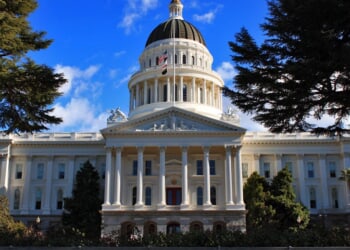Before the Declaration of Independence, there was the Olive Branch Petition.
Written 250 years ago on July 5th, the Olive Branch Petition was Thomas Jefferson’s first attempt to explain to King George III why the American Colonies were rebelling and ask for reconciliation.
The “Shot heard ‘round the world” had been fired almost three months earlier, and the Battle of Bunker Hill had just ended. It was readily apparent to the Second Continental Congress that the situation was spinning out of control. In a last-ditch effort to stave off a rebellion and attempt a peaceful settlement, John Hancock authorized the drafting of a document to explain the colonies’ position, acknowledge their loyalty to the King and propose a solution to the conflict.
Everything the colonists knew about their government was that the King’s representative controlled most of the governing of their political subdivision, and the actions of the Royal Governor were generally respected as if the King himself was in residence. What the colonists could not appreciate was the emerging British constitutional government caused Parliament to become more powerful while the King’s authority gradually eroded. Most critical in this tug of war for authority was the power of the purse. The King and Parliament routinely argued over taxing and spending with Parliament eventually gaining the upper hand. (POSTED: Inside Trump’s Kick-Off Of America’s 249th Birthday)
But during this time, while the role and responsibility of the King and Parliament were being established, the colonies were in the midst of creating their own unique political system. Initially, the colonies grew and developed with little, if any, input from the King. The customs as British subjects were transferred in a seamless manner, almost by osmosis, that accepted a local structure of self-government that was limited and almost invisible. The law and accompanying political organization were accepted by the colonies because they were familiar; but most importantly, they worked.
Always looking for new revenue to fund both the Crown and Parliament, the colonies became an untapped revenue stream. Under the excuse that the cost of protecting the colonies from foreign invasion should be paid for by the direct beneficiaries (the colonies), Parliament acted. Beginning in 1764, Parliament sought to impose various taxes on the colonies. The King benefited from these taxes as a portion of the generated revenue directly funded his royal court, but the numerous acts imposing taxes were not issued in the name of the sovereign, but in the name of Parliament.
So, with each successive tax, the colonists became more vexed and sought to avoid new levies in many ways; some benign, like smuggling or boycotting to avoid payment, or direct action, like the destruction of property to illustrate displeasure. But in all these aggressions against parliamentary acts, the colonists reasoned that if King George could understand the situation and reign in Parliament, then the colonial relationship could be restored. The colonists failed to appreciate the King’s complicity in the imposition of the various taxes.
When the relationship between the colonies further deteriorated and red coats were ordered to disarm colonial militias, the war of words turned into a hot war with the loss of life and destruction of property. Lexington, Concord, and Bunker Hill were more than simple police actions — they were serious military conflicts with significant casualties. With the conflict escalating, the Continental Congress tried one last step and appealed to the King with the Olive Branch Petition, which almost begged for a restoration of their former relationship. Thomas Jefferson’s initial draft of the Olive Branch Petition was too strident and bellicose, so with input from other founding fathers, John Dickinson would tone it down, and his revision was sent to the King after being approved by Congress.
King George never read the conciliatory document and instead responded by issuing his own Proclamation of Rebellion authorizing force to restrain the rebellion and hang the leaders. The Olive Branch Petition was an attempt to avoid bloodshed and restore an amicable relationship between the crown and colonies, but in rejecting the petition, the King, to his eventual detriment, turned loyalists into rebels.
One year later, Jefferson’s Declaration of Independence would set an inevitable course; Washington’s victory at Yorktown would conclude the matter.
Will Sellers is a graduate of Hillsdale College and was appointed by Gov. Kay Ivey as an Associate Justice on the Supreme Court of Alabama. He is best reached at jws@willsellers.com
The views and opinions expressed in this commentary are those of the author and do not reflect the official position of the Daily Caller News Foundation.
All content created by the Daily Caller News Foundation, an independent and nonpartisan newswire service, is available without charge to any legitimate news publisher that can provide a large audience. All republished articles must include our logo, our reporter’s byline and their DCNF affiliation. For any questions about our guidelines or partnering with us, please contact licensing@dailycallernewsfoundation.org.










![Florida Man With Violent History Arrested for Choking a Cop [WATCH]](https://www.right2024.com/wp-content/uploads/2025/06/Eleven-Stabbed-in-Attack-at-Salem-Homeless-Shelter-Across-From-350x250.jpg)






